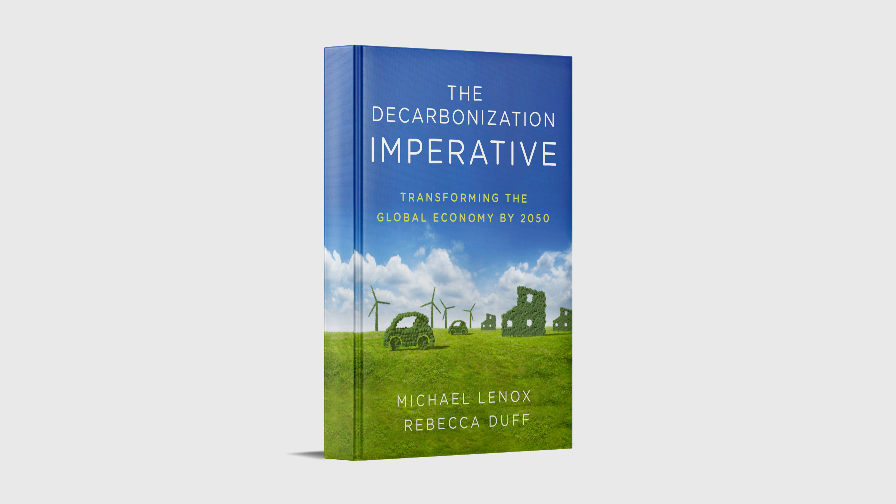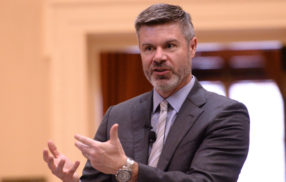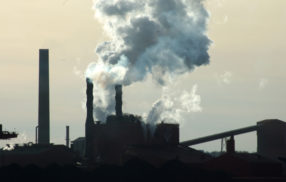
New Book From UVA Darden Professor, Senior Researcher Considers the Need to ‘Decarbonize’ the Economy as Soon as Possible
Climate change may be the greatest global threat of the modern era, with the continued rise of global temperatures promising catastrophe for hundreds of millions of people. If the world aims to avoid the worst effects of a changing climate, the global economy must effectively “decarbonize” by 2050, according to University of Virginia Darden School of Business Professor Mike Lenox and Senior Researcher Rebecca Duff, who explore the path forward in The Decarbonization Imperative: Transforming the Global Economy by 2050 (Stanford Business Books, 2021).
True decarbonization will represent a dramatic shift in the way the world operates.
It means 100 percent of the cars on the road being battery-powered or powered by some other non-carbon-emitting powertrain. It means 100 percent of global electricity needs being met by renewables and other non-carbon-emitting sources such as nuclear power. It means electrifying the global industrials sector and replacing carbon-intensive chemical processes with green alternatives, eliminating scope-one emissions — emissions in production — across all industries, particularly steel, cement, petrochemicals, which are the backbone of the global economy. It means sustainable farming while still feeding a growing global population.
Responding to the existential threat of climate change, The Decarbonization Imperative proposes a radical reconfiguration of the industries contributing the most, and most harmfully, to this planetary crisis. Disruptive innovation and a particular calibration of industry dynamics will be key to this change. The authors analyze precisely what this might look like for specific sectors of the world economy —ranging from agriculture to industrials and building, energy, and transportation — and examine the possible challenges and obstacles to introducing a paradigm shift in each one.
With regards to existent business practices and products, how much and what kind of transformation can be achieved? The authors assert that markets are critical to achieving the needed change, and that they operate within a larger scale of institutional rules and norms. Lenox and Duff conclude with an analysis of policy interventions and strategies that could move us toward clean tech and decarbonization by 2050.
The Decarbonization Imperative is available to purchase now.
The University of Virginia Darden School of Business prepares responsible global leaders through unparalleled transformational learning experiences. Darden’s graduate degree programs (MBA, MSBA and Ph.D.) and Executive Education & Lifelong Learning programs offered by the Darden School Foundation set the stage for a lifetime of career advancement and impact. Darden’s top-ranked faculty, renowned for teaching excellence, inspires and shapes modern business leadership worldwide through research, thought leadership and business publishing. Darden has Grounds in Charlottesville, Virginia, and the Washington, D.C., area and a global community that includes 18,000 alumni in 90 countries. Darden was established in 1955 at the University of Virginia, a top public university founded by Thomas Jefferson in 1819 in Charlottesville, Virginia.
Press Contact
Molly Mitchell
Associate Director of Content Marketing and Social Media
Darden School of Business
University of Virginia
MitchellM@darden.virginia.edu








